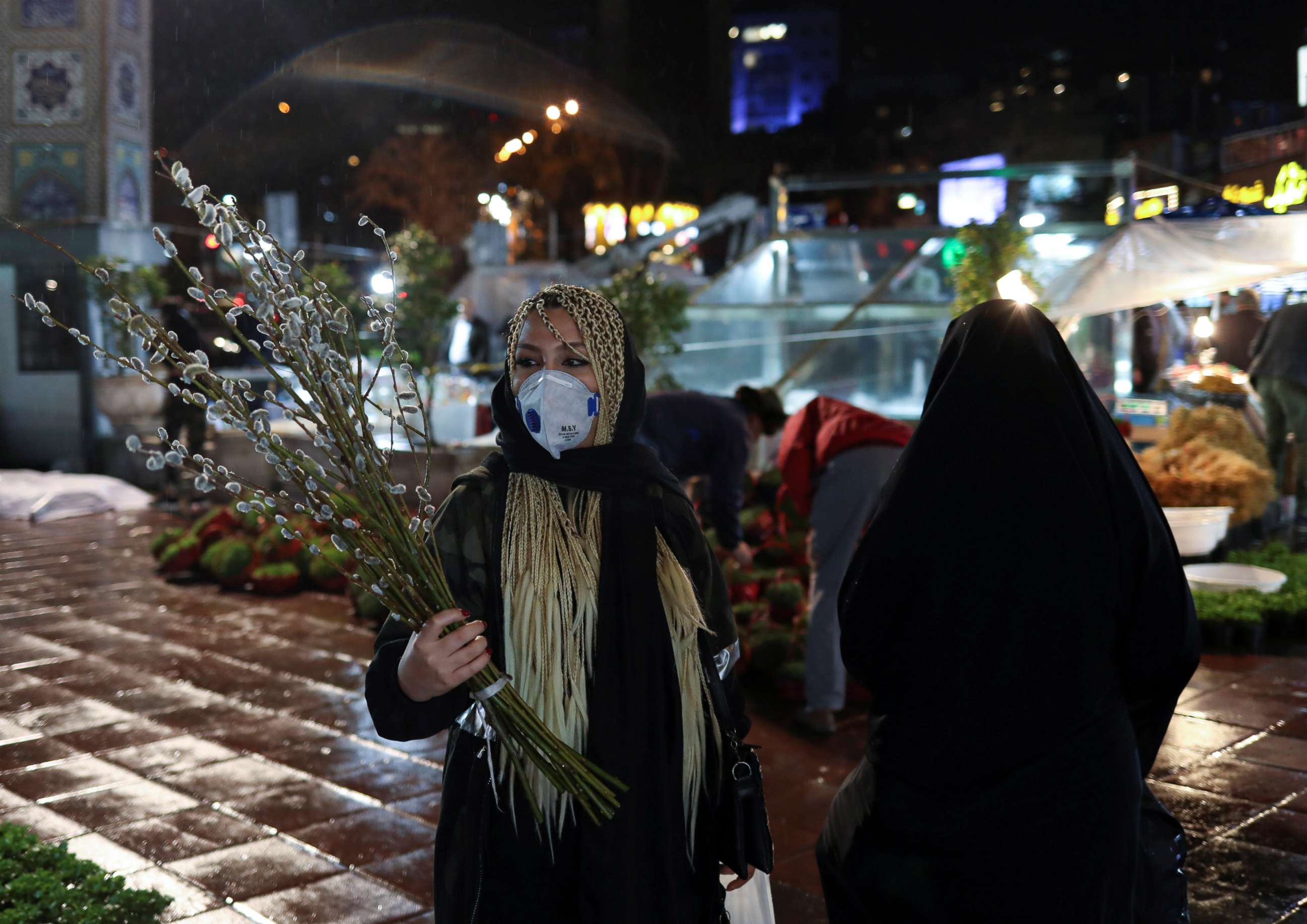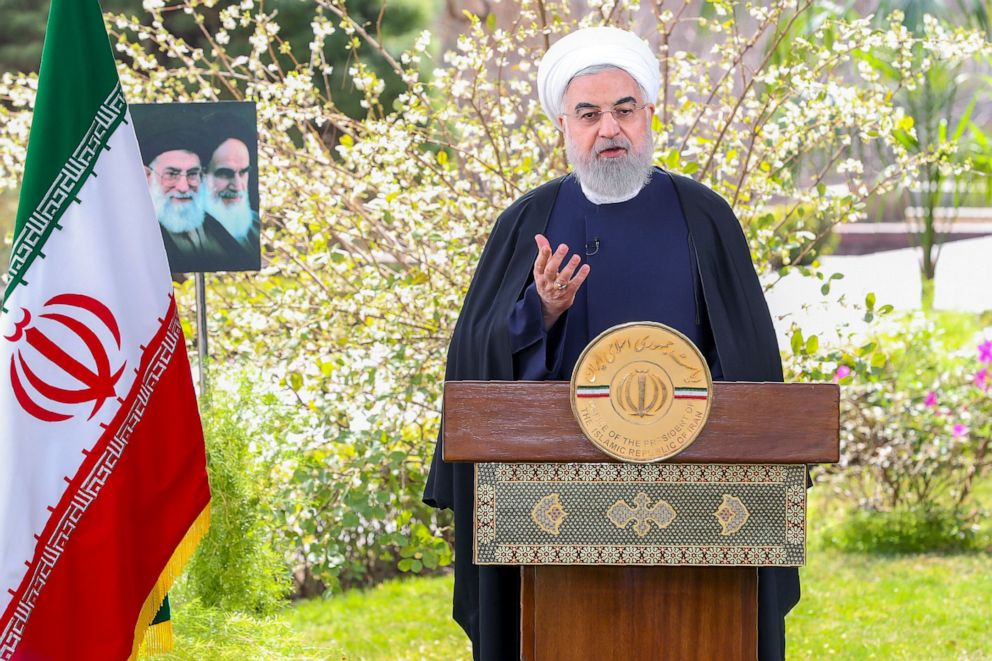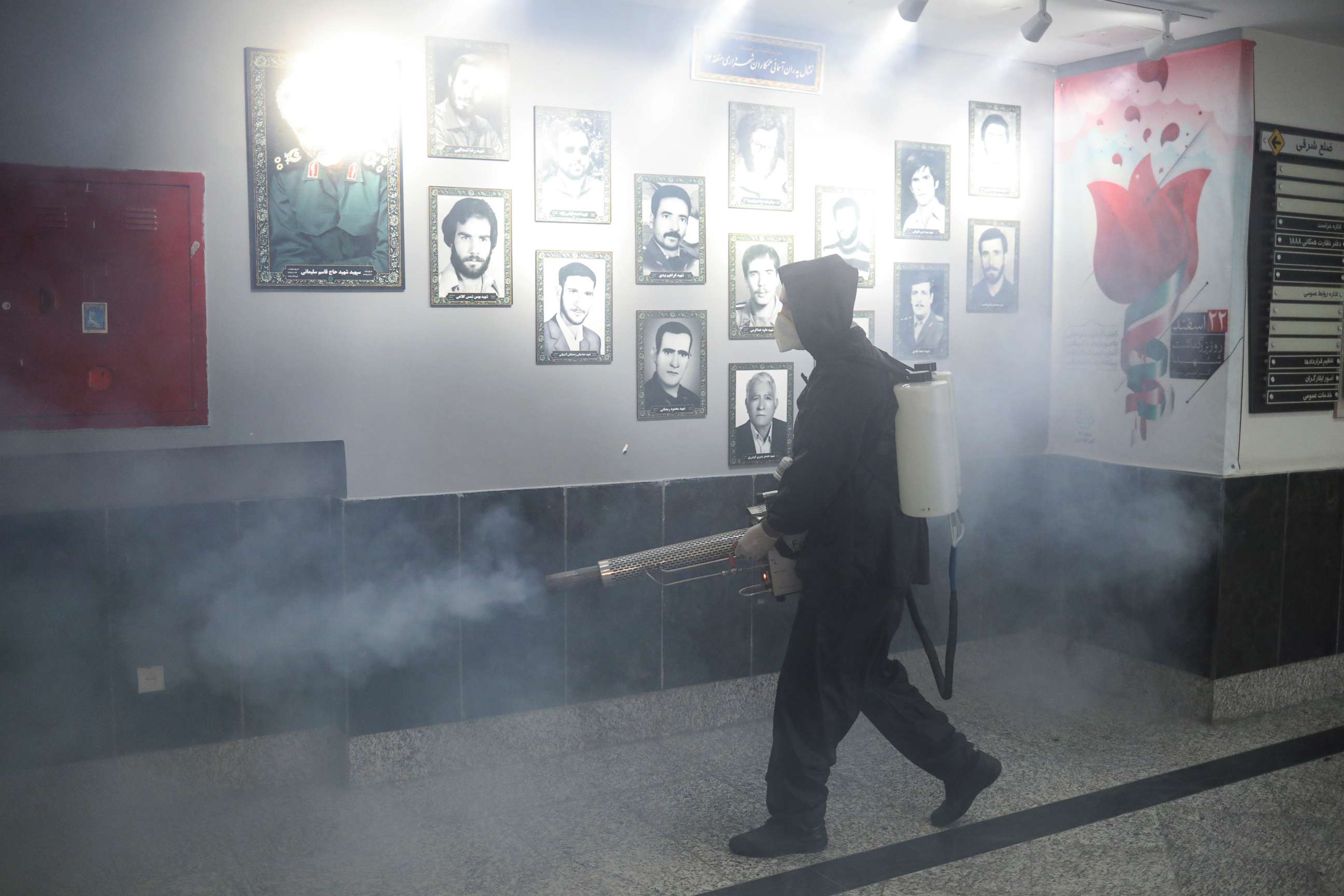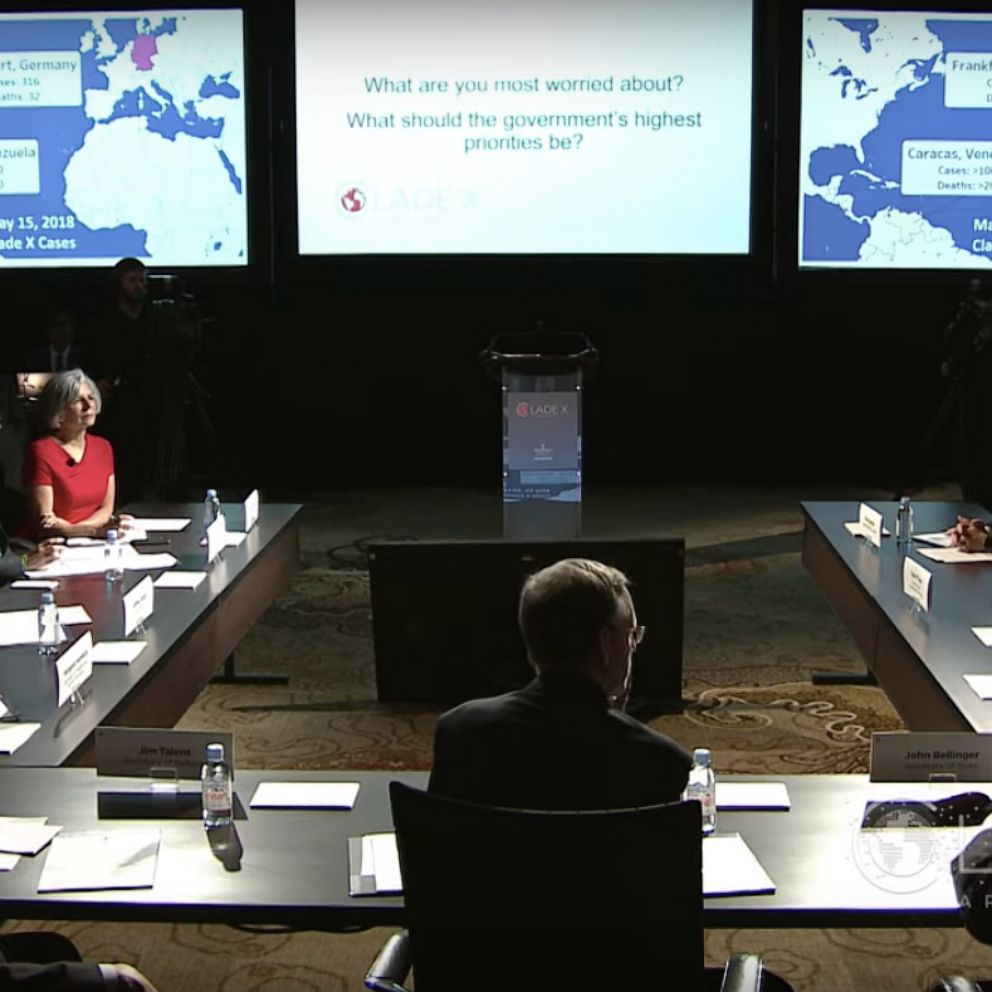As Iranian New Year begins, fear of new wave of coronavirus cases emerges
Traditionally, families will travel in the millions over the holiday weekend.
Novel coronavirus has turned the first day of the spring into a bittersweet occasion for Iranians, who celebrate it as the beginning of Norouz, the Persian New Year.
In the absence of rigid preventive measures, like mandatory quarantine policies or closing the roads, millions of Iranians refused to stay home and hit the roads for new year's trips, causing officials to fear another wave of COVID-19 infections across the country.
"It is tough to see people on the streets in the city or on their ways to Norouz trips. I feel like our lives don’t matter even to ourselves," Mehdi, 19, a vender selling home-sewn masks in Tehran, told ABC News. He did not want his full name to be revealed for security reasons.
"The only way to prevent this is to punish those who go on unnecessary travels. But I don’t know if that’s possible in Iran," he added.
Iran has been one of the hardest-hit countries in the world by COVID-19 infections, with just shy of 20,000 cases and at least 1,433 deaths, according to data from Johns Hopkins University. Norouz celebrations have made it hard to maintain control of the disease, especially with the country already suffering from severe economic and banking sanctions.
Tune into ABC at 1 p.m. ET and ABC News Live at 4 p.m. ET every weekday for special coverage of the novel coronavirus with the full ABC News team, including the latest news, context and analysis.
Mohammad Javad Azari Jahromi, Iran’s minister of communication technology, asked people on Thursday to avoid traveling for the holiday.
"Tonight the traffic load of the fixed network internet decreased while that of the mobile network went up dramatically setting an unprecedented record in Iran," Azari Jahromi tweeted. "It has a simple meaning: the journeys have begun. The only cure to corona is supporting each other. Our trip endangers others."

President Hassan Rouhani directed the minister of interior affairs on Friday to shut all shopping malls and markets until April 3.
Some provincial officials have also warned about the threat of Norouz trips and asked people to avoid traveling to the areas of their governance, including lawmakers of Isfahan, a popular domestic and international tourist destination of the country.
"Due to the high number of travels to the province, Isfahan ranks number two in the spread of corona disease in the country," wrote Isfahan parliamentarians in a joint letter to Rouhani, Islamic Students News Agency reported on Thursday.
"It jeopardizes the chance to control the crisis in Isfahan, if the government goes on pretending that the critical situation is normal," the letter added.
About 3 million people from coronavirus-hit provinces have set out on new year trips, Saeed Hemmati, caretaker of Iran’s Red Crescent Organization said Friday, according to the Young Journalist Club, a semiofficial news agency affiliated to the state TV.
Despite the Red Crescent Organization's statistics and provincial officials' warnings, Rouhani said he was "happy" with the relative reduction of the trips in his video conference with the commander of the traffic police on Friday, according to the official website of the president of the Islamic Republic.
"Seeing the road conditions today relieved me of all tiresome," he said, responding to the traffic police commander, who announced there has been 40% decrease in travel with personal cars and 60% in bus travel comparing to previous years.
"We have achieved an honorable status which some countries couldn’t achieve despite of implementing all of their police force. … We merely asked our people not to go on travel and they followed very well," Rouhani said.

The lack of uniformity in some officials' statements have made some citizens downplay the danger.
"I am not scared of the virus. I think it is overrated," Shojaei, 63, a taxi driver in Tehran, told ABC News, complaining about the relative decrease his workload compared to last year during Norouz.
"I used to earn around 200,000 tomans (around $15 U.S.) last year, but now it’s about 120,000 to 150,000 (around $10 U.S.). I think we just need to wear masks and gloves and we’ll be OK," he added.

However, Shojaei said he would not be visiting family members, which is inseparable from Norouz tradition in Iran.
Mehdi acknowledged the novel coronavirus as a dire threat, and said he had no intention of visiting family; he insisted he would not stop working.
"My brother and I have to provide our family of seven," he said, adding that his 24-year-old brother lost his job after the U.S. withdrew from the nuclear deal with Iran in 2018 and reimposed stiff sanctions on the country.
"The only way for us to stay at home is to be sure the government is able to compensate our daily revenue, which we know cannot happen in this situation with all sanctions and corruption," he said.







